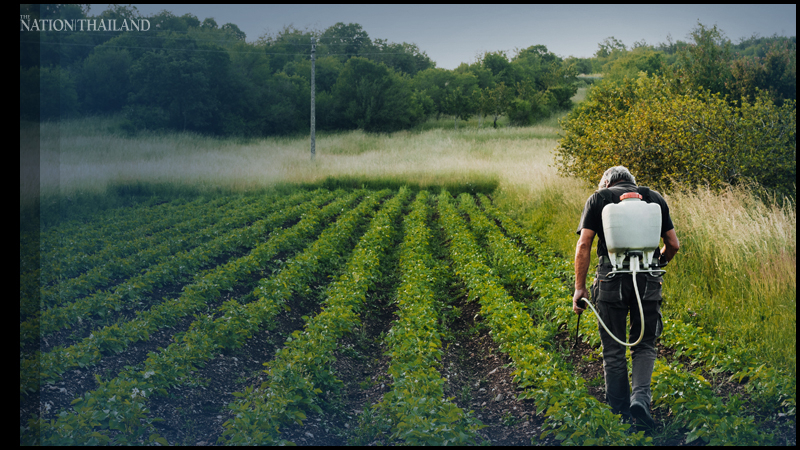
A number of ministers and high-ranking officials have vowed to keep pushing for a ban on three toxic pesticides – Paraquat, Glyphosate and Chlorpyrifos – which are widely used in agriculture.
Strict measures on using the three pesticides will take effect on October 20. The measures, announced on April 5, have brought cheers from consumers and NGOs but protests from some farmers, who claimed they still needed to use such pesticides.
When the new law comes into effect, farmers must provide certification to sellers or shops that they have been trained on how to properly use the pesticides, what type of crop the chemicals will be used on, and how big the area – all to calculate the suitable amount of the chemicals to be purchased. The person spraying the pesticides must also have a licence, while shops will be required to sell to registered and tested farmers only. Manufacturers, importers and exporters must inform officials about production, import or export processes, and the purpose of possession – for sale to the distributor or contractor who undertakes the spraying.
Agriculture Agency director-general Sermsuk Salakphet said farmers who still needed to use the three pesticides could apply for the training course with the government agency at any time.
Meanwhile, Agribusiness Association of Thai People president Weerawut Katanyukul said that in 2018, the country imported 170,000 tonnes of agricultural substances worth Bt3.62 billion – a decrease from 2017 imports of 198,000 tonnes.
“If there is a ban, it’s the farmers who will be at a disadvantage, while the entrepreneurs can always sell other substances instead,” Weerawut said.


